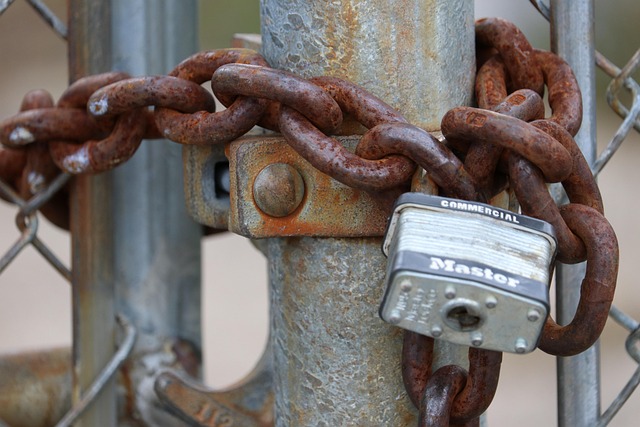Adopting remote access control solutions in cloud technologies demands understanding international laws like GDPR, CCPA, and HIPAA to safeguard data. Effective solutions integrate encryption, multi-factor authentication, and role-based access controls. Prioritizing data privacy and security through protocols, audits, and policies mitigates risks, fostering customer trust. Securing cloud-based remote access control solutions with MFA, centralized management, regular audits, and training is vital in today's remote work landscape. Navigating global laws presents a challenge, requiring adaptable solutions to comply with diverse regulations.
In today’s digital era, cloud-based access solutions offer unprecedented flexibility for remote teams. However, ensuring legal and regulatory compliance is crucial for safeguarding sensitive data and mitigating risks. This comprehensive guide delves into the key aspects of cloud compliance, including understanding global requirements, implementing robust data privacy and security measures, adopting best practices for access control in remote work environments, and navigating the complex legal landscape surrounding cloud solutions.
Understanding Cloud Compliance Requirements
In the realm of cloud-based access solutions, understanding legal and regulatory compliance requirements is paramount for businesses adopting remote access control strategies. These regulations govern how organizations manage data security, privacy, and user permissions in the cloud environment. Non-compliance can lead to severe legal repercussions, data breaches, and loss of customer trust.
Businesses must navigate a complex web of international laws, such as GDPR, CCPA, and HIPAA, which dictate how personal and sensitive information is handled. Cloud access control solutions need to integrate robust security measures, including encryption, multi-factor authentication, and role-based access controls, to meet these compliance standards. By ensuring these requirements are met, organizations can safeguard their operations, protect user data, and maintain regulatory integrity in the dynamic landscape of cloud technology.
Data Privacy and Security Measures
In today’s digital era, as organizations increasingly adopt cloud-based remote access control solutions, ensuring robust data privacy and security measures has become paramount. These solutions offer unparalleled convenience for users while accessing company resources from anywhere, but they also expose potential vulnerabilities that must be addressed to protect sensitive information. Therefore, comprehensive security protocols are essential, including strong encryption methods, multi-factor authentication (MFA), and regular security audits to identify and mitigate risks effectively.
Implementing data privacy best practices is crucial for maintaining the confidentiality, integrity, and availability of organizational data accessed through cloud-based remote access control solutions. This involves adhering to relevant data protection regulations such as GDPR or CCPA, conducting thorough background checks on third-party service providers, and establishing clear data retention policies. By prioritizing these security measures, organizations can safeguard their data assets while leveraging the flexibility and scalability offered by cloud technologies.
Access Control Best Practices for Remote Teams
With the rise of remote work, ensuring secure access control for remote teams using cloud-based solutions is paramount. Best practices involve implementing multi-factor authentication (MFA) to protect user accounts from unauthorized access. Companies should also enforce strong password policies and regularly update them to keep up with evolving security threats.
Additionally, centralized access management systems facilitate granular control over who has access to what resources, enabling administrators to swiftly grant or revoke permissions based on dynamic team structures and roles. Regular audits of access rights are crucial to identify and rectify any discrepancies or excessive privileges. This, coupled with training employees on cybersecurity best practices, helps maintain a robust security posture for remote access control solutions.
Navigating Global Legal Landscape for Cloud Solutions
In today’s digital era, cloud-based remote access control solutions have become a global phenomenon, offering businesses unprecedented flexibility and scalability. However, navigating the intricate web of international laws and regulations is an essential yet challenging aspect for providers and adopters alike. The global legal landscape for cloud solutions presents a complex mosaic, with varying data privacy, security, and intellectual property standards across jurisdictions.
Understanding these nuances is critical to ensure compliance and avoid potential pitfalls. For instance, while some regions, like the EU, have stringent regulations such as GDPR, others may have less stringent data protection laws. Cloud service providers must design their solutions with global reach in mind, implementing robust mechanisms to adhere to local legal frameworks when offering services internationally. This involves a deep understanding of each market’s unique requirements and regular updates to stay compliant with evolving regulations.
Implementing cloud-based access solutions requires a deep understanding of legal and regulatory compliance to ensure data privacy, security, and effective remote access control. By navigating the global legal landscape and adopting best practices in access control, organizations can leverage the benefits of cloud technology while mitigating risks. This includes stringent data protection measures, robust user authentication, and comprehensive training for remote teams. Embracing these strategies not only fosters a secure digital environment but also enables seamless collaboration, ultimately enhancing productivity in today’s distributed workforce.
